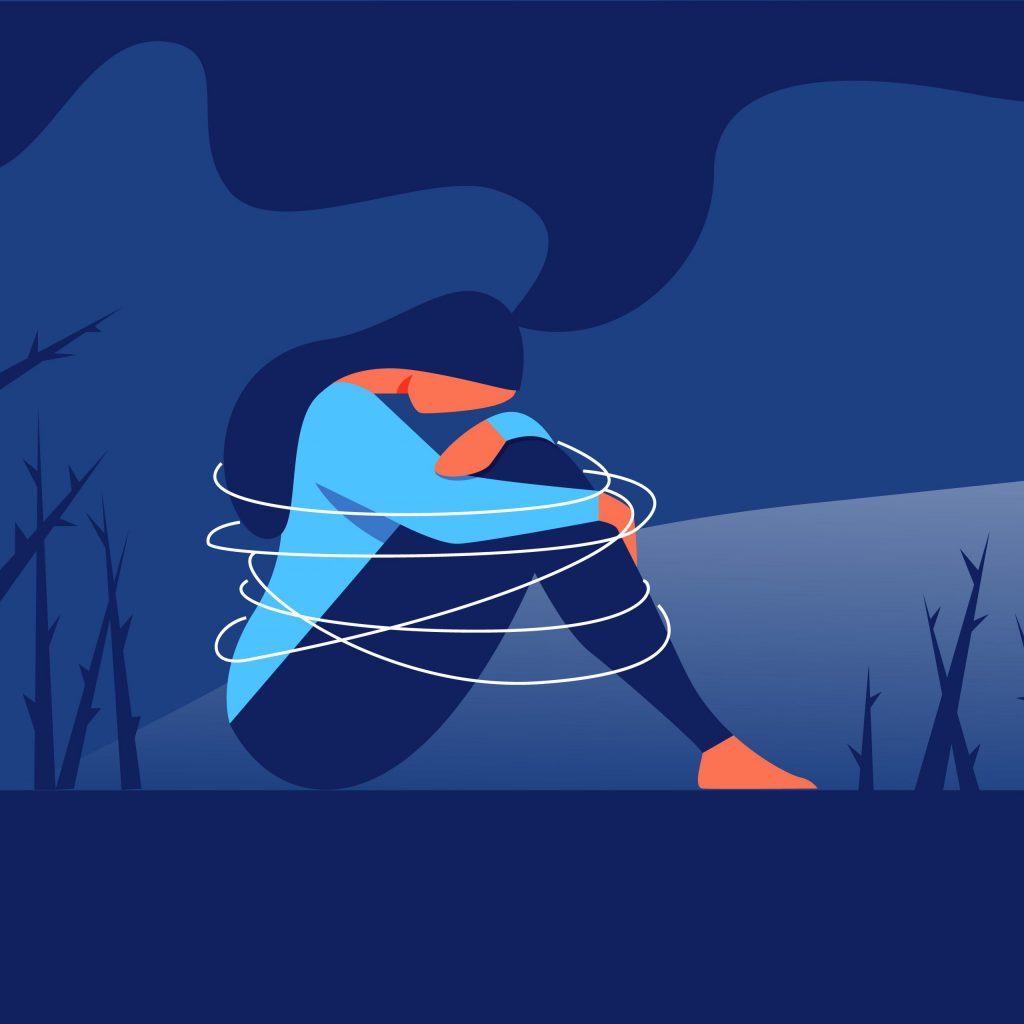by Amy Burdett

My quarantine is not your quarantine. I self-quarantine as part of my anxiety, on a regular basis. The idea of staying away from people is not scary to me, nor novel. Being able to pull back and isolate is both a protective measure and something that my therapist tries to encourage me to overcome. That’s not to say that the Novel CoronaVirus outbreak has been easy. Part of my essential nature is to want to be informed. If something is going on that is of worldwide significance or is particularly tragic or has the possibility to seriously affect me, I want to know about it, and COVID-19 ticks the boxes.
In phone sessions with my therapist, I can track the growing effects of this crisis. At first, it was, “We should have reacted sooner, it would have saved lives,” and then I could move on to other topics. After a while, our discussions focused mainly on the fact that, while I am taking precautions for myself, I worry that enough is not being done to protect people infected, the people who treat them, and the people who maintain essential services.
As of the 20th of April, we graduated to full on “OK, look, this is crazy.” The money intended to help the people who are struggling is going to the most wealthy. The so-called “leader of the free world” is encouraging behavior that will deepen the crisis and is touting a seriously unproven and potentially dangerous drug therapy. And his followers are marching in step with him! We are replaying the end of the Weimar Republic, and you know who’s playing the part of Adolph Hitler.
My therapist claims I am overreacting and that I need to focus on taking care of myself. Possibly, although in the conventional ways of being taken care of, I am OK. In fact, I am a helluva lot better than a lot of people. I read today about a family where both parents work as first responders and their young daughter died from COVID-19. And that is just one of the many heartbreaking stories out there.
This crisis is not about me. This crisis is about us. Not us, as in “citizens of the United States,” but us as in “people conditioned to privilege.” This crisis is laying bare the ravages of a system that has undermined support for humanity and that continues to demonstrate a virtually sociopathic disregard for the myriad broken systems that pile misery on so many people. COVID-19 does not discriminate. However, while the virus itself seems capable of infecting anyone, we see its worst effects in populations that have been historically under-served in terms of health care, but also in terms of basic infrastructure and other essential systems. Even before the quarantine, we knew that these living conditions burden people worldwide with physical and mental health issues, as well as a lack of housing and economic insecurity. The quarantine has simply thrown these abuses into even sharper relief. We also know, beyond a shadow of a doubt, that those abuses stem from the economic hegemony of capitalism.
In order for the rich to continue raking it in, they have to pull from somewhere. And they don’t care if that is money that could go to fix a water system in Detroit, to fund alternative fuel research, to combat climate change, to build schools, clinics, and housing, or other things that we know are essential to a healthy human life. No, capitalism has no regard for those things and, by simple extension, has no regard for the majority of us that depend upon them.
What is the cure for the systemic sociopathy that has aggravated the pandemic, then? How about reawakening of human compassion? This may sound a little “woo,” in the sense of being touchy-feely, bordering on mystical. But what we need now is to care about humanity.
How we go about feeling compassion for people is tricky, but luckily we have some good examples about how to demonstrate it. We need to provide what people need. It’s so simple. With the resources we have we could make inroads toward alleviating the suffering of our fellow humans. Alas, most of the resources are locked in the vaults and offshore accounts of the wealthy. But what if they weren’t? What if the output of our society was focused on building up people, not bottom lines? What if we used our combined creative power and force of will to combat not just disease, but poverty and all its concomitant ills? Doing these things, we would have a more equitable, safe, and healthy society and all benefit.
We don’t have to reinvent the wheel to do this. We are not the first generation to see the abuses of capitalism and to seek something better. Oddly, due to the fact that the pandemic has stripped away the mask of “compassionate conservatism,” we may be the first generation to have an opportunity to make real, lasting, and substantive change. And we have blueprints for that. We, all of us, can control what happens in the future.
We start by spreading the power out to all people. When we, all of us, have a say in where resources go, in how surplus is distributed, we can ensure that no one is left hungry, or homeless, or to die of a preventable disease. Sadly, the word “socialism” is probably more scary to many people than “COVID-19s.” But socialism offers the promise of a better and more just society, where the needs of people and their well-being are cared for and the other is what is giving me an excuse to stay in quarantine. We have a clear choice. The consequences are enormous if we don’t choose socialism.